Peugeot Rifter vs Kia PV5 - Differences and prices compared
Compare performance (136 HP vs 163 HP), boot space and price (23800 £ vs 32800 £ ) at a glance. Find out which car is the better choice for you – Peugeot Rifter or Kia PV5?
Costs and Efficiency:
When it comes to price and running costs, the biggest differences usually appear. This is often where you see which car fits your budget better in the long run.
Peugeot Rifter has a evident advantage in terms of price – it starts at 23800 £ , while the Kia PV5 costs 32800 £ . That’s a price difference of around 9000 £.
In terms of energy consumption, the advantage goes to the Peugeot Rifter: with 18.30 kWh per 100 km, it’s barely noticeable more efficient than the Kia PV5 with 19 kWh. That’s a difference of about 0.70 kWh.
As for electric range, the Kia PV5 performs somewhat better – achieving up to 416 km, about 77 km more than the Peugeot Rifter.
Engine and Performance:
Power, torque and acceleration say a lot about how a car feels on the road. This is where you see which model delivers more driving dynamics.
When it comes to engine power, the Kia PV5 has a slightly edge – offering 163 HP compared to 136 HP. That’s roughly 27 HP more horsepower.
In acceleration from 0 to 100 km/h, the Kia PV5 is minimal quicker – completing the sprint in 10.60 s, while the Peugeot Rifter takes 10.80 s. That’s about 0.20 s faster.
There’s also a difference in torque: Peugeot Rifter pulls a bit stronger with 300 Nm compared to 250 Nm. That’s about 50 Nm difference.
Space and Everyday Use:
Whether family car or daily driver – which one offers more room, flexibility and comfort?
Seats: Peugeot Rifter offers distinct more seating capacity – 7 vs 5.
In curb weight, Peugeot Rifter is somewhat lighter – 1561 kg compared to 1860 kg. The difference is around 299 kg.
In terms of boot space, the Kia PV5 offers clearly perceptible more room – 1330 L compared to 1050 L. That’s a difference of about 280 L.
When it comes to payload, Peugeot Rifter minimal takes the win – 814 kg compared to 790 kg. That’s a difference of about 24 kg.
Who wins the race?
The Peugeot Rifter proves to be slightly ahead and therefore becomes our DriveDuel Champion!
Peugeot Rifter is the better all-rounder in this comparison.
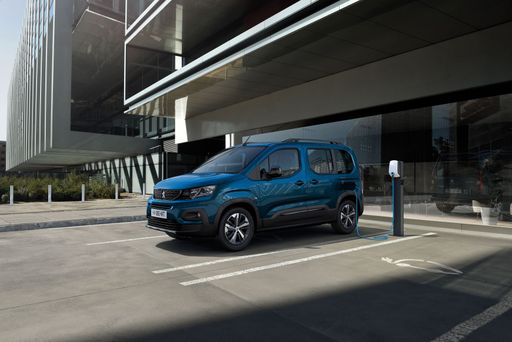
Peugeot Rifter
Costs and Consumption
View detailed analysis
Engine and Performance
View detailed analysis
Dimensions and Body
View detailed analysis
Peugeot Rifter
The Peugeot Rifter is a practical, family-friendly people carrier that makes everyday errands and weekend escapes feel effortless thanks to its airy cabin and clever, flexible interior. With chunky, purposeful styling and storage solutions everywhere, the Rifter manages to be both unashamedly useful and unexpectedly likeable.
details
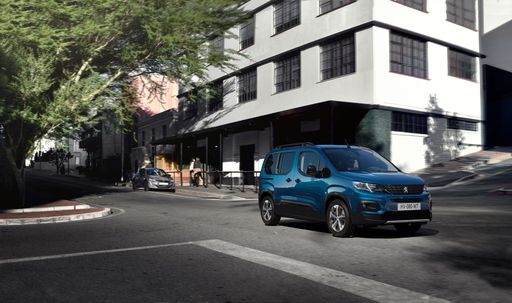
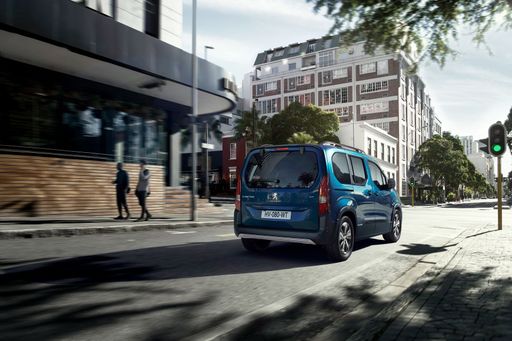
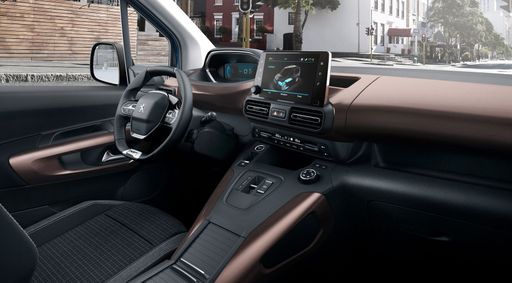
Kia PV5
The Kia EV5 is an exciting new entrant in the landscape of electric SUVs, promising a blend of style and innovation that captures attention. It boasts a sleek and modern design that aligns with Kia's evolving aesthetic identity, blending practicality with eye-catching details. With its foray into the electric vehicle segment, the EV5 is set to offer a highly competitive option for those looking to embrace sustainable mobility without compromising on comfort or tech features.
details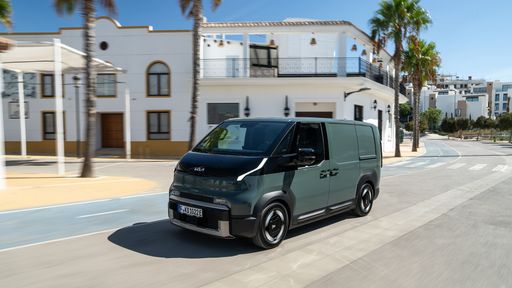



Costs and Consumption |
|
|---|---|
|
Price
23800 - 36600 £
|
Price
32800 - 38900 £
|
|
Consumption L/100km
5.6 - 6 L
|
Consumption L/100km
-
|
|
Consumption kWh/100km
18.3 - 19.1 kWh
|
Consumption kWh/100km
19 - 19.3 kWh
|
|
Electric Range
328 - 339 km
|
Electric Range
295 - 416 km
|
|
Battery Capacity
-
|
Battery Capacity
-
|
|
co2
0 - 158 g/km
|
co2
0 g/km
|
|
Fuel tank capacity
50 L
|
Fuel tank capacity
-
|
Dimensions and Body |
|
|---|---|
|
Body Type
High Roof Estate
|
Body Type
Cargo Van, Bus
|
|
Seats
5 - 7
|
Seats
2 - 5
|
|
Doors
4 - 5
|
Doors
-
|
|
Curb weight
1561 - 1941 kg
|
Curb weight
1860 - 2145 kg
|
|
Trunk capacity
322 - 1050 L
|
Trunk capacity
1330 L
|
|
Length
4405 - 4755 mm
|
Length
-
|
|
Width
1848 mm
|
Width
1895 mm
|
|
Height
1818 - 1837 mm
|
Height
-
|
|
Max trunk capacity
3000 - 3500 L
|
Max trunk capacity
-
|
|
Payload
489 - 814 kg
|
Payload
455 - 790 kg
|
Engine and Performance |
|
|---|---|
|
Engine Type
Electric, Diesel
|
Engine Type
Electric
|
|
Transmission
Automatic, Manuel
|
Transmission
Automatic
|
|
Transmission Detail
Reduction Gearbox, Manual Gearbox, Automatic Gearbox
|
Transmission Detail
Reduction Gearbox
|
|
Drive Type
Front-Wheel Drive
|
Drive Type
Front-Wheel Drive
|
|
Power HP
102 - 136 HP
|
Power HP
121 - 163 HP
|
|
Acceleration 0-100km/h
10.8 - 13.6 s
|
Acceleration 0-100km/h
10.6 - 16.2 s
|
|
Max Speed
132 - 184 km/h
|
Max Speed
-
|
|
Torque
250 - 300 Nm
|
Torque
250 Nm
|
|
Number of Cylinders
4
|
Number of Cylinders
-
|
|
Power kW
75 - 100 kW
|
Power kW
89 - 120 kW
|
|
Engine capacity
1499 cm3
|
Engine capacity
-
|
General |
|
|---|---|
|
Model Year
2024
|
Model Year
2025
|
|
CO2 Efficiency Class
A, E, F
|
CO2 Efficiency Class
A
|
|
Brand
Peugeot
|
Brand
Kia
|
What drivetrain options does the Peugeot Rifter have?
The Peugeot Rifter is offered with Front-Wheel Drive.




